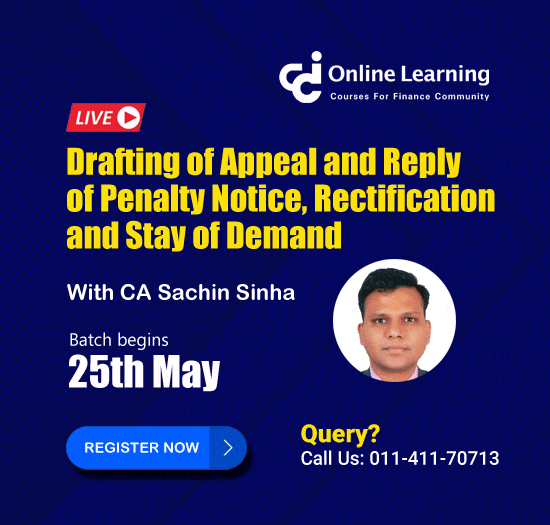INCOME Tax search is a common and regular phenomenon. Every other day
it is reported by the media. It becomes more headline-grabbing during
the last leg of the fiscal when certain targets are to be realised. But
can it be conducted even after the death of an assessee? Sounds
strange! But this was precisely the issue which came up before the
Tribunal. And what did the Tribunal do? The outcome was quite
predictable - it simply dismissed the proceedings conducted in
pursuance of a search warrant issued u/s 132 of the Act in the name of
a dead person. But the Tribunal allowed the Revenue to pursue legal
course against the legal heirs of the assessee as per legal provisions.
Brief Facts :
Assessee (deceased) was a manager of a Co. called RMEC Project Ltd. A
Search was conducted in the offices of the Co. during which some
incriminating material was found against the assessee showing that the
assessee had colluded with others to siphon off huge amounts of the
project. However the assessee died thereafter but on the basis of this
a warrant u/s 132 of the IT Act was issued against him and even a
search was conducted despite the revenue authorities being fully aware
of the assessee's death. In consequence of this search u/s 132, revenue
proceeded to make assessment on the legal heirs of the assessee u/s
158-BC(c)/144 of the Act after duly serving notices on the legal heirs.
The order of assessment was appealed against by the Assessee before
CIT(A) who held in favour of assessee and observed that the assessment
made u/s 158-BC(c)/144 was invalid since the same was done in
consequence of search conducted in the name of a dead person which was
illegal and against the principles of natural justice. Therefore if the
search was void then anything done in consequence thereof is also void.
Aggrieved by the decision, Revenue went in appeal to the Tribunal which decided the matter finally.
The following grounds were taken by Revenue in appeal :
1. On the facts and in the circumstances of the case, the learned
CIT(Appeals) has erred in law in cancelling the assessment made under
sec. 158-BC(c) on the legal heirs of Sh. Mohar Singh (deceased) by
ignoring the fact that search u/s.132 was duly carried out after
executing the search warrants upon Smt. Kanta Devi and Shri Mahavir
Singh, sister and brother in law of the assessee (deceased)
respectively.
2. That the learned CIT(Appeals) has wrongly applied the ratio of
judgment of Hon'ble Delhi High Court in the case of RC Jain through
L.R. v. CIT and others, 190 CTR 34 as in the said case no notice was
issued in the name of the legal heirs of deceased whereas in the
present case notice u/s. 158 BC dated 20.05.2004 was issued in the name
of legal hair of the assessee followed by another notice u/s. 142(1)
dated 7.6.2004 issued in the name of Shri Rakesh Kumar Mukesh Kumar
legal of the assessee and accordingly assessment order u/s. 158-BC(c)
dated 30.7.2004 passed in the name of legal heir of the assessee
(deceased) suffers from no legal or technical infirmity and deserves to
be confirmed.
3. That the deceased Sh. Mohar Singh who as Manager of M/s. RMEC
Project Ltd. had siphoned off huge funds by manipulating the accounts
and preparing bogus bills and the assessment completed at
Rs.70,10,060/- is based on incriminating documents found and seized
during search u/s.132 containing the details of undisclosed income of
the assessee.
4. That the order of the learned CIT(Appeals) is erroneous as it is
violative and is against the provisions of sec. 159 of the Income Tax
Act, 1961 which stipulates that any proceedings which could have been
taken against the deceased if he had survived, may be taken against the
legal representative and all the provisions of Income Tax Act shall
apply accordingly.
Having heard the arguments the Tribunal observed that,
++ not only the search but also search warrants were illegal and void
ab initio as they were issued in the name of a dead person and thus
violative of principles of natural justice and provisions of law, and
thus assessment made in consequence of such search is also illegal and
liable to be quashed. However, though the action of Revenue was illegal
in the present situation, it wasn't without a remedy and the
authorities could proceed against the legal heirs of the assessee under
appropriate provisions.







 CAclubindia
CAclubindia

